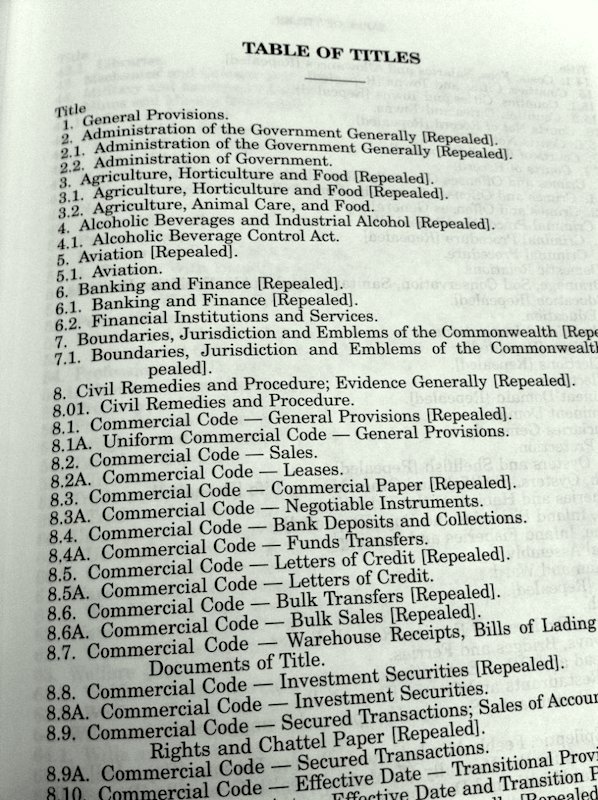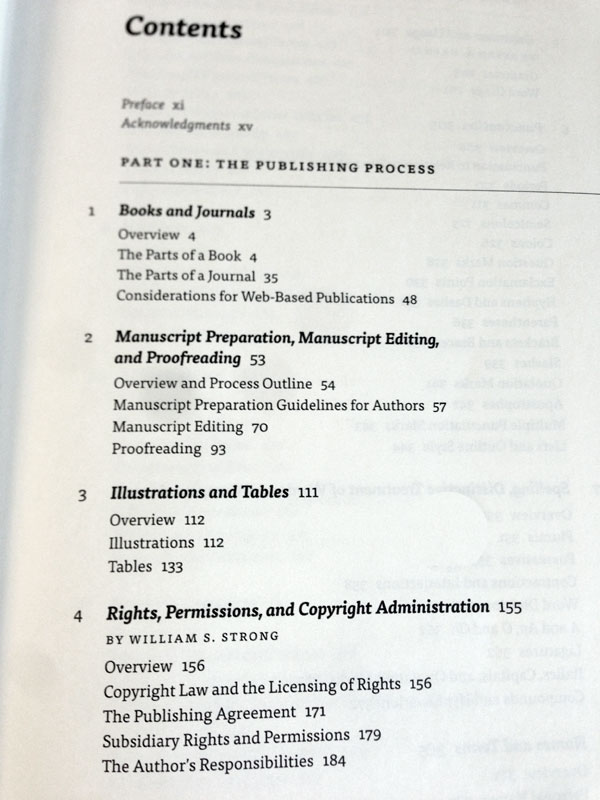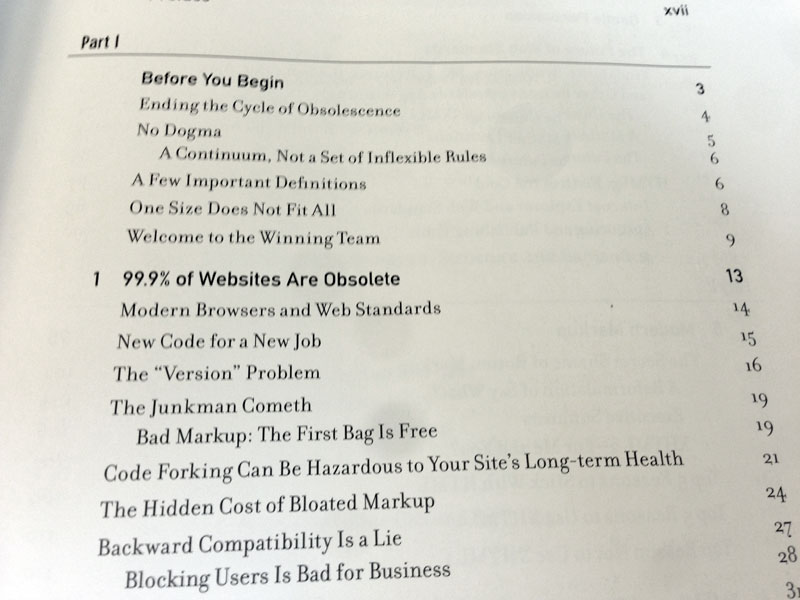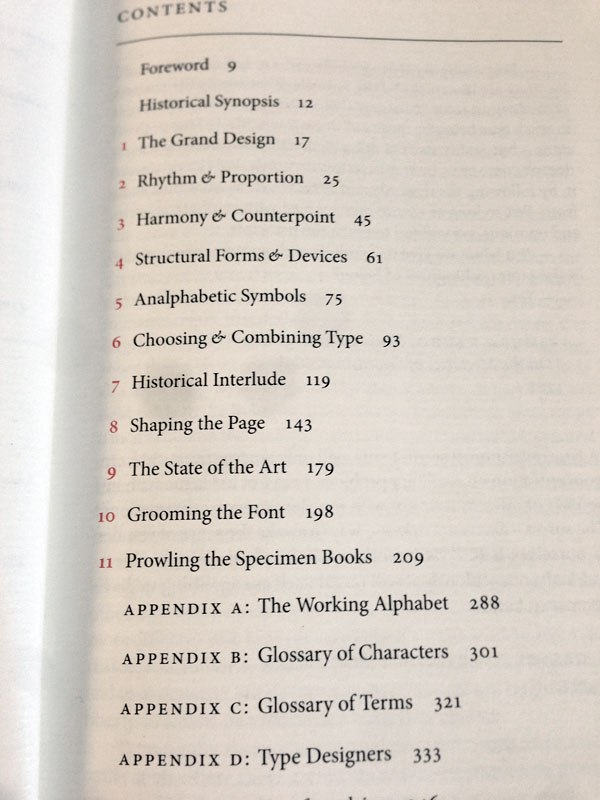This is what the table of contents looks like in LexisNexis’s printed edition of the Code of Virginia:
I was a bit stunned the first time I saw this. It’s just word soup. There’s simply no effort to make it legible. No thought has gone into this. There is, in short, no love.
I feel like, as a culture, we basically understand how to make tables of contents. Right? Grabbing a few books off my desk, more or less at random, I thought I’d compare Lexis’s table of contents to those of others. Here’s The Chicago Manual of Style:
Designing with Web Standards, by Jeffrey Zeldman and Ethan Marcotte:
And Robert Bringhurst’s The Elements of Typographic Style:
These are all different, but via various small design cues they all manage to accomplish the same thing: they make it easy for somebody to browse through the contents of the text and locate the specific section that they need. Microsoft Word, right out of the box, will happily render a table of contents in styles reminiscent of all of these, with minimal effort.
LexisNexis isn’t even trying. I can’t pretend to know why. But with this as the current state of affairs in the presentation of legal information, it’s trivial for The State Decoded—or anybody with a copy of Word—to improve upon it.





I wonder if this is because they make the bulk of their money from collating and providing access to the data at a low-level. Spending resources to make the data more cognitively accessible might not provide them with reasonable returns on the investment.
I suppose that’s possible, Cushing. I think they sell an awfully large number of volumes each year, but perhaps they function primarily as office decorations at this point? That said, making the TOCs look better would be a pretty trivial task. That’s something a temp could knock out in an afternoon. (My wife used to temp for Lexis, many years ago. At least then they relied pretty heavily on temp labor for this sort thing.)
On Twitter, Erin Monaghan suggests that this simply a holdover from the days when the Michie Company printed the Code of Virginia. (Disclaimer: My father-in-law worked for Michie.) They may have done it in this manner, for lack of any competition or demand for improvement, and now Lexis would rather leave it as-is than face complaints from attorneys that a thing is different than it was and, therefore, bad. As both an origin story and as reason for not improving it, this is better than anything I can manage to think of.